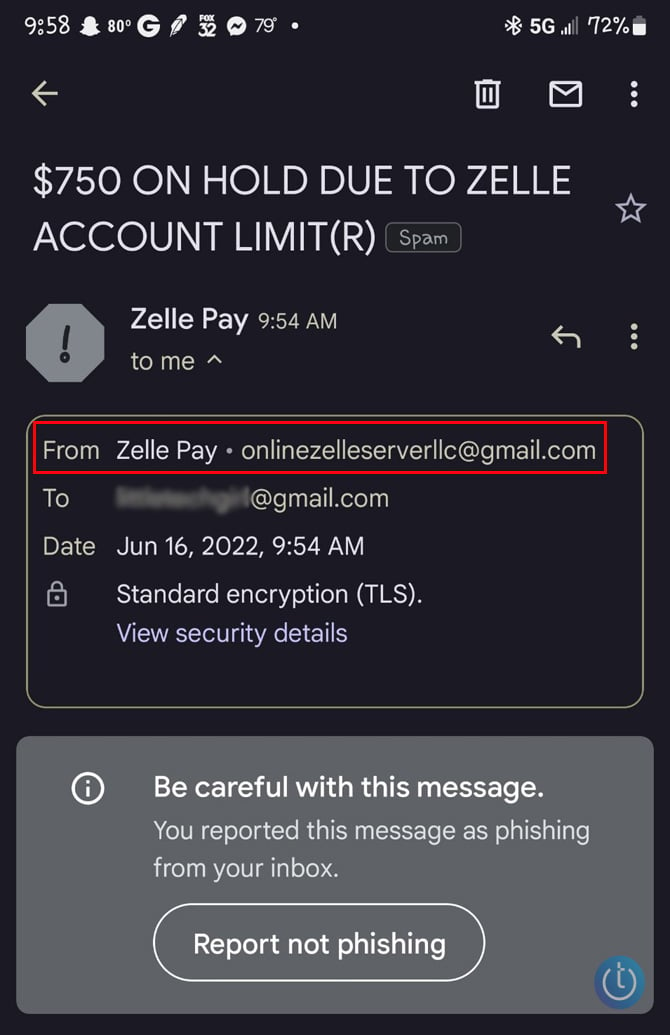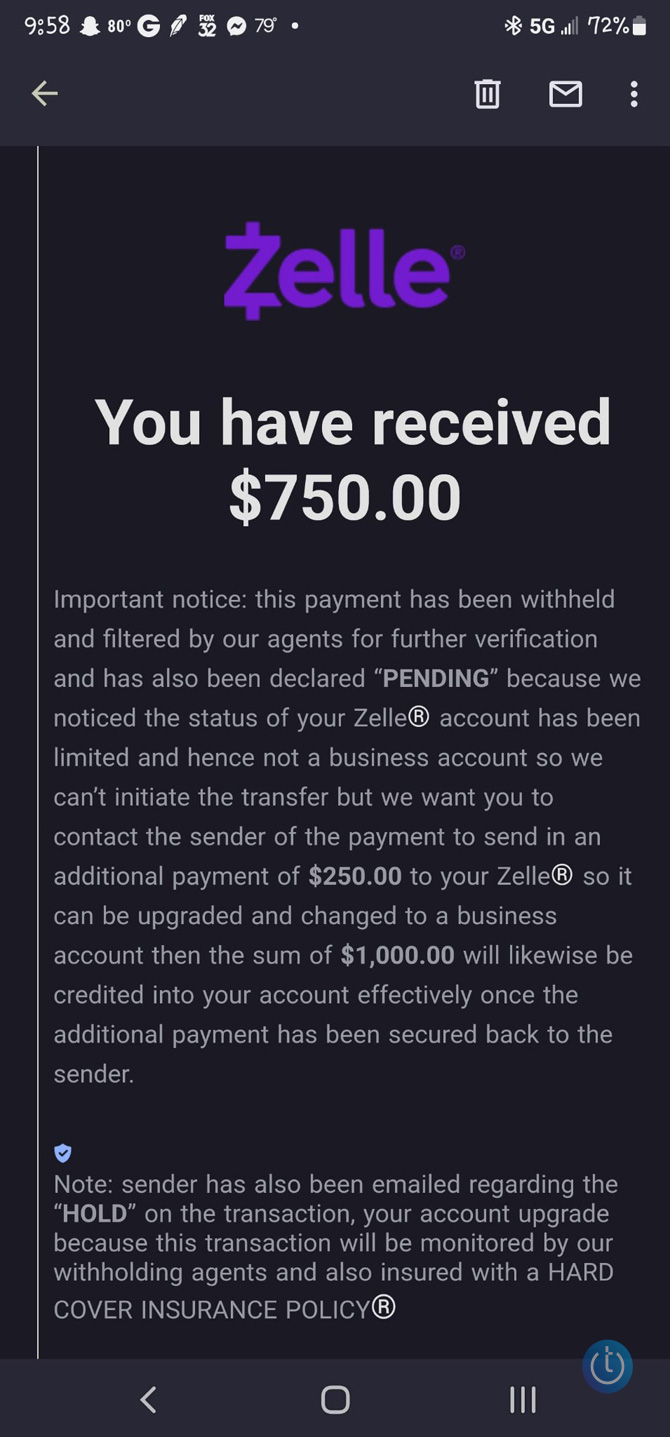If you’re selling an expensive item on Facebook Marketplace, you need to be on alert for scammers. The Better Business Bureau has tracked a growing number of cases where scammers are trying to trick sellers into sending them money through Zelle and other peer-to-peer payment apps, like Venmo or CashApp. Fortunately, this scam is easy to spot if you know what you’re looking for.
How the Facebook Marketplace scam works
After listing your item on Facebook Marketplace, an interested buyer contacts you. They’ll ask questions and maybe even offer you more money than you were asking. You settle on a price – let’s say $750 – and the buyer requests to pay using Zelle or another peer-to-peer payment app. There’s nothing odd about that, so you accept.
Shortly after accepting, you receive an email from Zelle. Except it isn’t from Zelle – it’s from a spoofed account (see our story on how to tell if an email is spoofed) or copycat email address meant to look like a Zelle account. For instance, one of my professional colleagues, Kris McDonald of Little Tech Girl’s Digital Homestead, received her scam email from onlinezelleserverllc@gmail.com – clearly not from Zelle.

Image credit: Kris McDonald/Techlicious
The fake Zelle email claims that the buyer’s payment is pending because your personal Zelle account is limited and you need to upgrade to a business account. Here’s where it gets really odd. The fake Zelle email instructs you to ask your buyer to send more money – let’s say $250 on top of the $750 you agreed upon – to upgrade your account to the minimum level for a business account. The fake Zelle email states that once your account shows $1,000 and you refund the buyer the $250, you’ll have access to your $750.

Image credit: Kris McDonald/Techlicious
McDonald cut off the scammer at this point. However, the next step is that the buyer agrees to pay the additional $250 and you are sent another fake email confirming the money was sent to your Zelle account. When you send the buyer their $250 refund from your real Zelle account, you're now out the cash and the supposed buyer disappears.
The red flags in the Facebook Marketplace scam
- Someone offers to pay you more than you’re asking for. Most buyers don’t bargain up the price.
- An email from the payment service that’s not from your bank if it’s a Zelle transaction or the payment service (for example not from an email address from @zellepay.com for Zelle transactions, @cash.app for CashApp transactions, or @venmo.com for Venmo transactions).
- An email from the payment service that says it is holding or declining payment. Even if the email address looks legitimate, check to see if it’s spoofed (see our instructions on how to tell if an email is spoofed). It's always best to login to your account directly to confirm anything you receive via email.
- Bad grammar, misspelled words, or bizarre logic/reasoning in the contents of the email.
- Requests for additional payment. While financial institutions may attach fees, you should never have to send money to receive payment.
[Image credit: iPhone 11 on white background showing Facebook Marketplace via Techlicious/Smartmockups]
For the past 20+ years, Techlicious founder Suzanne Kantra has been exploring and writing about the world’s most exciting and important science and technology issues. Prior to Techlicious, Suzanne was the Technology Editor for Martha Stewart Living Omnimedia and the Senior Technology Editor for Popular Science. Suzanne has been featured on CNN, CBS, and NBC.














From Joe Clouser on August 21, 2022 :: 5:05 am
I am a FB user and have used MarketPlace to sell or purchase about 20 items over the last 5 years. Days ago, I listed a used Utility Sink for sale with nice faucet for $150. It received little interest and I was motivated to move this item out of my garage. Today, I followed MarketPlace’s suggestion to display my ad with other groups. Before joining any other groups, my Messenger was buzzing with approximately 20 inquiries “is this still available”, all but 1 were female, they profess to want to stay save and ask if they can send me a secret 6 digit code, I said okay because I was anxious to sell and not thinking clearly. I get the 1st code and it is Google’s typical verification process and they say to not share with anyone else. Again, I foolishly gave about 3 different persons the code. They are all pushy and when my phone number did not work, they boldly tell you to provide another cell number. It was a nightmare after I learned that they are trying to scam your Google Voice phone number, to join the hordes of spam callers waiting to make your cell phone virtually useless. I took the steps to reclaim my Google Voice number even though I have never used it and did not realize it could be used to gain entry to my privacy and safety. Thanks facebook!
Reply